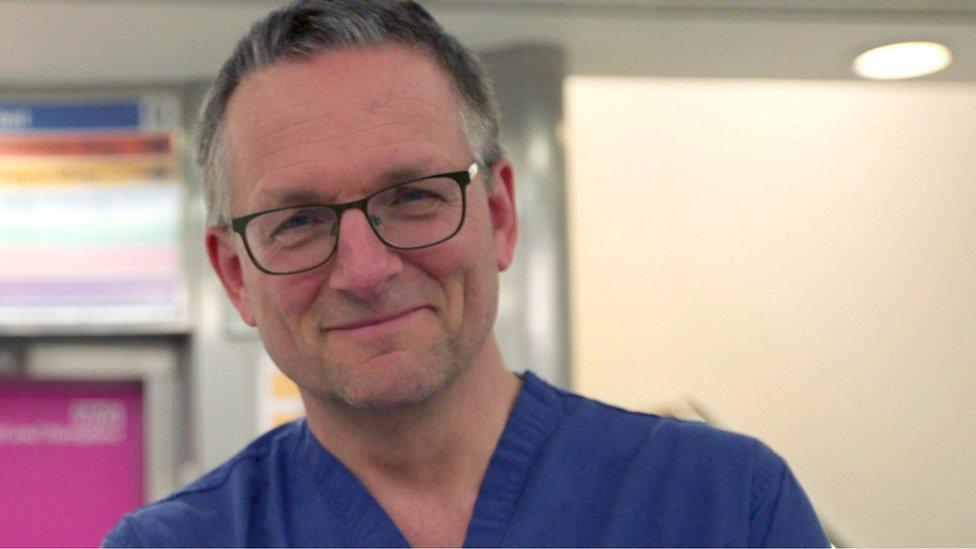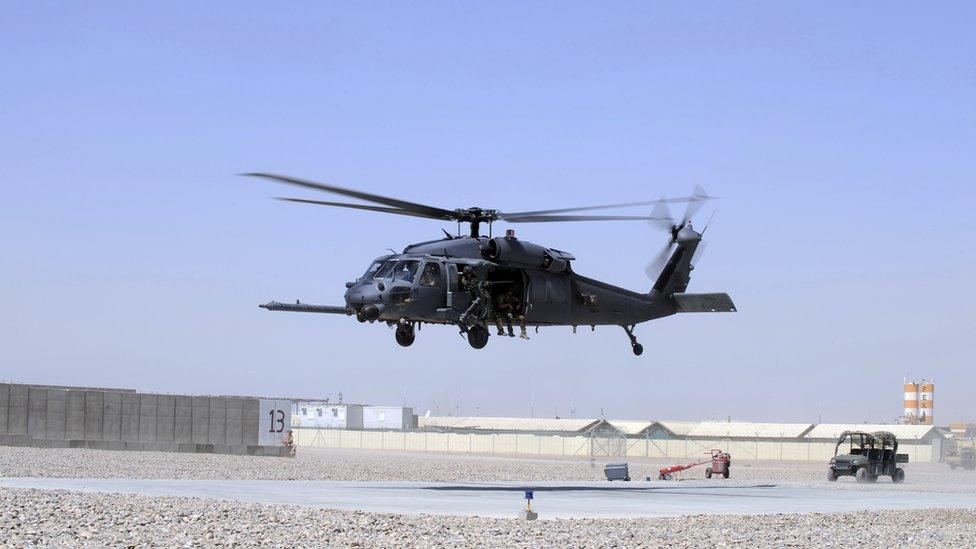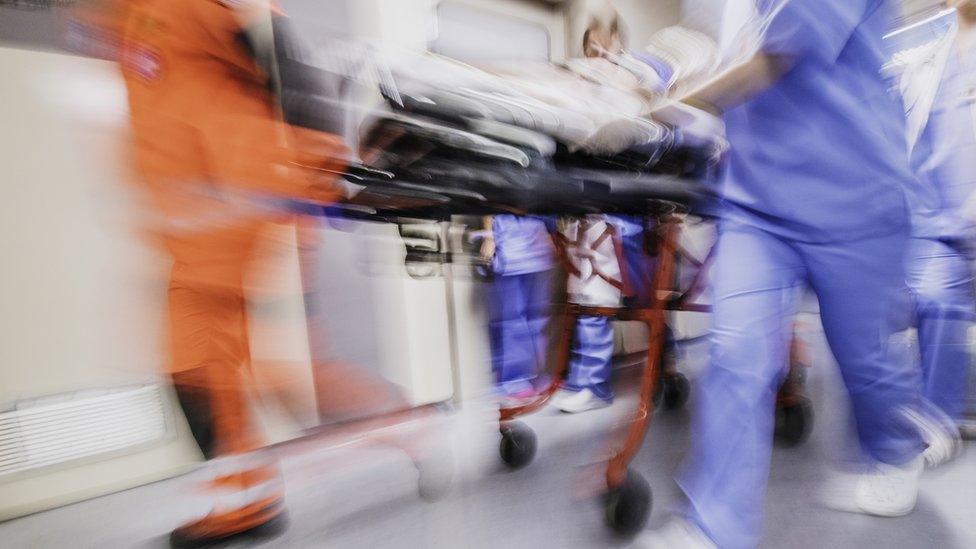Being back in the NHS 'reminded me of Afghanistan'
- Published

The first patient that I ever got my hands on in A&E, when I was a medical student 30-plus years ago, was an alcoholic who had fallen over and badly cut his skull.
I was asked to stitch him up. But I was really nervous and when I'd finished and tried to take my hand away... I realised I'd stitched my glove to the top of his head!
I'm back in an NHS hospital, working in the busy casualty department at King's College Hospital in London as part of Celebrities on the NHS Frontline, marking the health service's 70th birthday.
I was there with former MP Ann Widdecombe, Paralympian Jonnie Peacock - who underwent a below-the-knee amputation as a result of meningitis aged five - and reporter Stacey Dooley who had a heart condition when she was young.
It feels far busier in A&E than when I was training and there are more senior staff, keeping an eye on proceedings.
Given my training, I was thrown in at the deep end, helping the junior doctors out in resus - where the most seriously ill patients go.
The good news for doctors training now is that, ever since the European Working Time directive was introduced in 2004, it has been illegal to make juniors work the sort of 100-hour weeks that were standard in the 1980s.
The bad news is that when they are on the job, most junior doctors are working harder than ever.
Camp Bastion
Over three days I helped the overworked staff deal with a wide range of patients, from someone who had fallen off a roof to another who was wheeled into the ward groaning and agitated after a suspected drug overdose.
Years of drug abuse meant most of his veins were blocked, so I had to hold him down by lying on his legs while the consultant searched his body for any vein he could use to introduce a sedative.

It was very different to the sort of A&E departments I'd worked in as part of my medical training, but I had experienced something similar before.
Six years ago, I filmed a series called Frontline Medicine in a military hospital in Afghanistan. At the time, the hospital in Camp Bastion had the best trauma unit in the world.
It was a moving and haunting experience. I saw dozens of young soldiers, the same age as my sons, admitted with life-threatening injuries. Some had been shot, but the worst injuries were those caused by IEDs (improvised explosive devices).
Many of those brought in had had a limb blown off, some more than one. Yet the survival rates in that hospital were extraordinarily high - over 90%, the highest ever seen in the history of warfare.
That was partly because of medical and surgical innovations, such as improved blood transfusion techniques and pain relief.
But it was also because, through bitter experience, the doctors and surgeons in Camp Bastion had developed a swift and co-ordinated approach to managing serious trauma.
I'm pleased to say that the lessons learnt by the military in places like Afghanistan have been incorporated into the NHS, which helps explain why your chances of surviving a catastrophic injury are so much greater these days than when I was a medical student.
Major trauma centres, like the one at King's, not only have superbly-trained staff, but they provide consultant-led expertise in lots of different areas like anaesthetics, resuscitation, orthopaedics and emergency medicine.
If you are seriously ill you will get rapid access to a CT scanner, if needed, and then to an emergency operating theatre. In my two weeks at Kings I saw numerous examples of how brilliantly the service can work.
This is the NHS at its best.
Culture change

The trouble is that the NHS is now having to cope with changes in society that were never expected, let alone planned for, when it was set up 70 years ago.
We are living longer, but in ill health.
We are not only getting older, but fatter and sicker. This is hugely expensive.
The NHS clearly needs more money, but more money put not only into hospitals but into primary care, social care and preventing the ever-rising levels of obesity.
With huge numbers of doctors and nurses leaving the NHS, it is clearly important to find ways to keep the staff motivated, otherwise they will walk.
The staff I spoke to said it is not only about hours and pay (although that helps) but also about changing the culture, particularly when it comes to dealing with mistakes.
The aviation industry has made flying safer by encouraging an atmosphere of openness, sharing what has been learnt from past errors.
I saw many remarkable, heart-warming things in my two weeks back on the wards.
I left feeling inspired, but also concerned about the size of the challenges that the NHS will face in the coming years.
Celebrities on the NHS Frontline is on BBC One at 21:00 on Thursday 28 June and available afterwards on iPlayer.
- Published25 June 2018
- Published29 June 2018
- Published25 June 2018